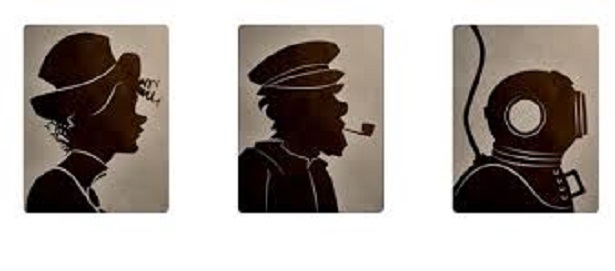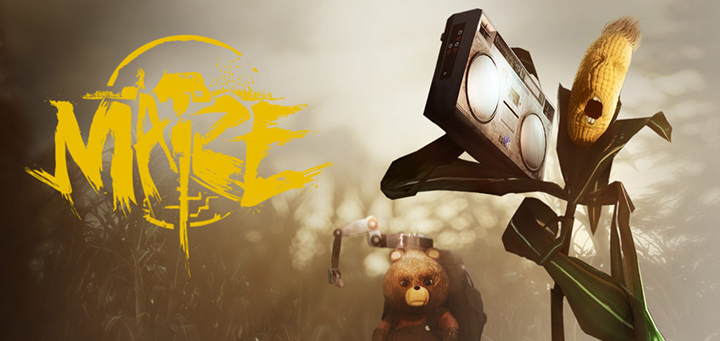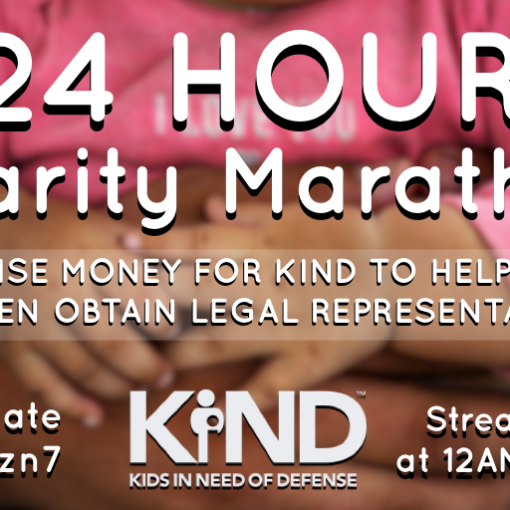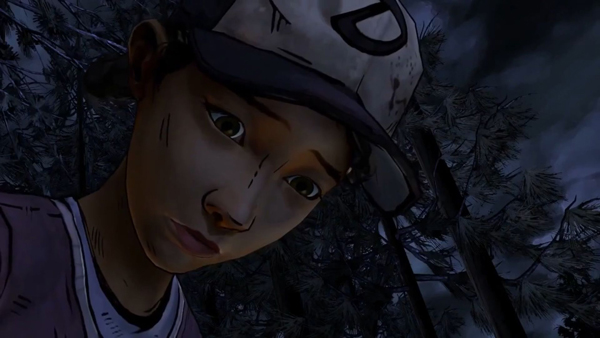When I was little, I wanted to be a cowboy when I grew up. Okay, there was a short period in preschool during which I wanted to be a ballerina, but I soon realized that tights are itchy and, also, that I can’t dance. Being a cowboy seemed a much better option—no tights or dancing, just moustaches and tough-guy dialogue. And, boy, do I love a good moustache (I’m lookin’ at you, Sam Elliott).
I grew up watching John Wayne movies with my grandfather, going (over and over again) to the Autry Museum of the American West with my father and sister, and running around the house in my fringed cowboy boots shouting at my grandmother, “Stick ‘em up! Who are you?”
To which she once answered, “Billy the Kid!”
And to which I responded, “Aw, I don’t shoot kids,” as I sauntered away with my thumbs in my belt loops.
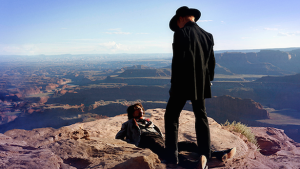 So, yes. This is all to say that I loved cowboys as a kid. And I love them now (still lookin’ at you, Sam Elliott). But something that has changed since I was a kid is the fact that I have, since then, worked to reconcile with my love of a genre that typically reifies the power fantasies of white men, fantasies entrenched in racism, sexism, heteronormativity, colonialism, and violence. All of which I’ve continued to think about while watching the new HBO show Westworld.
So, yes. This is all to say that I loved cowboys as a kid. And I love them now (still lookin’ at you, Sam Elliott). But something that has changed since I was a kid is the fact that I have, since then, worked to reconcile with my love of a genre that typically reifies the power fantasies of white men, fantasies entrenched in racism, sexism, heteronormativity, colonialism, and violence. All of which I’ve continued to think about while watching the new HBO show Westworld.
It seems that Westworld asks us to think through such tensions because, as Danielle Riendeau puts it, the show does not simply celebrate its “fun wild west setting. It wants you to think—really think—about its implications. And it rubs your face in the most uncomfortable parts.” Some of these “uncomfortable parts” occur within the setting of its world, a setting that is, of course, “very Old West: a racist, sexist environment where women characters are typically either young, milky white maidens to be saved or tarty prostitutes offering their wares in dusty saloons. Men of color…are treated as fodder for abuse and violence.” To be sure, the show interrogates and critiques the racism and sexism of the Western genre—but what is interesting about this is that it does so by especially commenting on “the game industry, on the ethics of pleasure, and the broader landscape of entertainment.” And it’s the game industry component, here, that seems particularly compelling.
Because, ultimately, the setting of Westworld is not simply that of a Western but that of a Western game. Indeed, Riendeau explains,
Westworld (the park/game itself) is essentially a hyper-advanced MMO, with some LARP elements. But instead of homemade swords and ragtag outfits, it sports Walt Disney World’s budget and attention to architectural detail, and repurposes Disney’s audio-animatronic figures as advanced AI NPCs, with emotions, motivations and memories. These are “host” androids who believe themselves to be the characters living in a classic western town. Each day, their short-term memories are erased so they can go about their business without the trauma of remembering what awful things players did to them the day before.
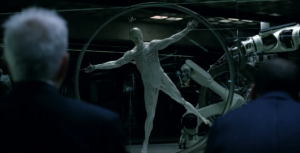 And, as Riendeau continues, the “language of modern game design” is continuously invoked throughout the show in order to highlight the game-like quality of its environment: “There are ‘quests,’ ‘hosts,’ and world events that recall MMO structures. Even the team of people who run the game can be understood in clear game industry roles: an executive producer, a creative lead, a head of programming, a lead writer/narrative designer.”
And, as Riendeau continues, the “language of modern game design” is continuously invoked throughout the show in order to highlight the game-like quality of its environment: “There are ‘quests,’ ‘hosts,’ and world events that recall MMO structures. Even the team of people who run the game can be understood in clear game industry roles: an executive producer, a creative lead, a head of programming, a lead writer/narrative designer.”
Davis Cox, too, notes the ways the show comments on and parallels the structure and development of video games: “With ‘over 100 interconnected storylines’ programmed into the park’s daily routine, the world they’ve created resembles a heightened version of the storytelling that players of modern RPGs have grown accustomed to.” And Cox argues that the show’s creators, Jonathan Nolan and Lisa Joy “have created a world that feels just as lived-in and fleshed-out as the interactive stories they drew inspiration from.”
In an interview with Larry Fitzmaurice, Jonathan Nolan discussing this inspiration:
A lot of interesting storytelling that’s happening right now is in video games…Now, video games are a bigger industry than film or TV. I’ve never worked in that industry, but we have friends who have, and I was fascinated by the concept of writing a story in which the protagonists’ actions aren’t part of the story. In games like The Elder Scrolls: Skyrim, Red Dead Redemption, or the sandbox games that Bioware make, morality is a variable. How do you write a story in which the hero’s moral component exists on a spectrum? That’s a fascinating challenge.
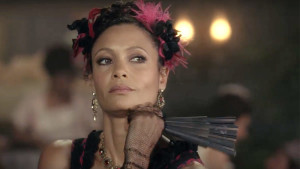 And one of the ways Westworld explores this spectrum of morality is through its examination of the NPCs that live in its world—and Nolan says this stems from his fascination with how NPCs “in video games have their own lives…I was listening to director’s commentary from
And one of the ways Westworld explores this spectrum of morality is through its examination of the NPCs that live in its world—and Nolan says this stems from his fascination with how NPCs “in video games have their own lives…I was listening to director’s commentary from
Ken Levine about building Bioshock Infinite and the affection that game developers and designers develop for their characters. It’s a qualitatively different relationship than the one screenwriters have with their characters, because video game characters don’t just recite dialogue—they do shit, and the players interact with them.”
And many of these interactions between players (or, as the show calls them, “guests”) and NPCs in Westworld result in violence, for Nolan explains, “It is a show about violence…and we’re asking the question, ‘Why is it that we like violence in almost all of our entertainment?’ Violence is in most of the stories we like to watch, but it isn’t part of what we like to do—so why are [the guests on Westworld] paying money to exercise that appetite?” Lisa Joy echoes these questions and their centrality in the show: “Why are we so drawn to loss and violence? I think it’s a kind of medicine—we explore in fiction what we desperately fear and abhor in reality, and chronicling it in fiction is our way of avoiding it or learning from it. Maybe that’s also why people go into the park in Westworld. It’s not necessarily a question we have the answer to, but it’s something that we’ve talked about.”
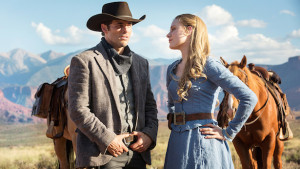 To be sure, such questions—questions about the intersection of loss, violence, and entertainment—sit at the heart of the show, and it seems that the show specifically examines the ways such violent entertainment is constructed on gendered and race-based lines. Riendeau argues that this examination is what makes the show particularly engaging: “What Westworld does so brilliantly is take more subtle shots at the dude-centric fantasies that inspire a good chunk of genre fiction, and hence a healthy number of big budget games.” Thus, Westworld not only critiques the “dude-centric fantasies” that are manifested in the Western genre but also those that are embedded in the medium of video games as well, which Riendeau says allow us to “look at our industry with fresh eyes.”
To be sure, such questions—questions about the intersection of loss, violence, and entertainment—sit at the heart of the show, and it seems that the show specifically examines the ways such violent entertainment is constructed on gendered and race-based lines. Riendeau argues that this examination is what makes the show particularly engaging: “What Westworld does so brilliantly is take more subtle shots at the dude-centric fantasies that inspire a good chunk of genre fiction, and hence a healthy number of big budget games.” Thus, Westworld not only critiques the “dude-centric fantasies” that are manifested in the Western genre but also those that are embedded in the medium of video games as well, which Riendeau says allow us to “look at our industry with fresh eyes.”
And I think that’s something that Westworld is affording me, too—because it’s allowing me to complicate and navigate my relationship with the Western genre, the field of games, and the violence that is consistently represented in both.

